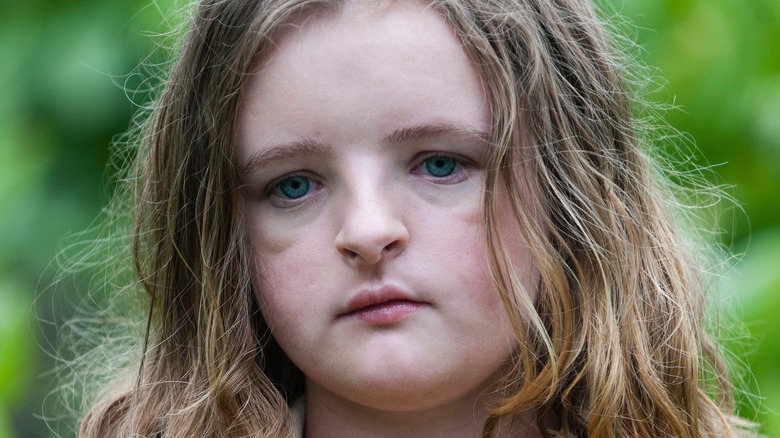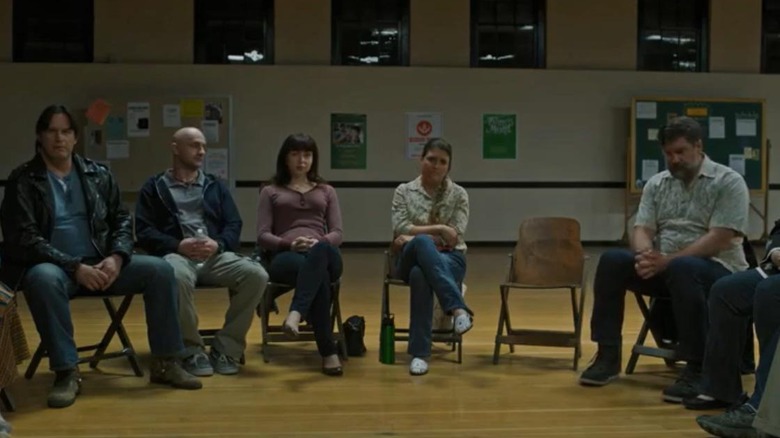Why Hereditary's Support Group Scene Is More Important Than You Realized
"Hereditary" is 2018 psychological horror starring Toni Collette. The film was a breakout project from director Ari Aster and tells a dark story about family dynamics and grief. The film opens shortly after the death of Annie's (Collette) mother Ellen (Kathleen Chalfant). The two are not close and have been estranged for years due to Ellen's Dissociative Identity Disorder and Annie's childhood trauma. Soon after, Annie's daughter Charlie (Milly Shapiro) also dies tragically in an accident while her son Peter (Alex Wolff) was driving. This causes the family to spiral all while unearthing shocking discoveries about Ellen's secret lifestyle and possible relation to cult practices.
On the surface level, "Hereditary" is horrifying for its subject matter and use of visual horror, but the film is made even more terrifying by its underlying meanings and interpretations. The film makes commentary on a few subjects, including determinism, mental health, and family trauma that all link back to the common thread of grief and loss. With such strong symbolism and an ending with a huge payoff, the writing of the film had to be airtight — everything that happens in "Hereditary" is intentional.
So, while some scenes might merely seem like filler or a quick exchange of dialogue to keep the story progressing, they are all actually seemingly very well throughout and important to telling the larger story. Here is why the support group scene is more important than you may have realized.
It's all about story development
A week after Ellen's passing, Annie decides to go to a local support group for those experiencing grief and loss. The four-minute scene reveals important elements of the story as Annie shares past experiences with her mother and family. While Annie shares her experiences at the meeting, viewers learn that Ellen suffered from Dissociative Identity Disorder as well as Dementia in her old age; Ellen supposedly influenced Annie's daughter Charlie; Annie's father passed from starvation due to his Psychotic Depression; and Annie's schizophrenic brother committed suicide, blaming Ellen in his note by saying she was "putting people inside him."
The information bomb could be seen as the only way to communicate that Annie's childhood was not exactly sunshine and rainbows, and that mental illness runs in Annie's family. However, those bits of information establish a lot of the groundwork for the story going forward.
Firstly, the heavy presence of mental illness puts the idea in viewers' minds — for the rest of the film — that what you may be seeing could be the result of mental instability. In other words, viewers are left questioning if what they are seeing is actually happening or not, which is extremely important to the payoff of the film's conclusion. Furthermore, it foreshadows that very conclusion, where the audience realizes everything is real and Ellen was actually trying to put a demon king in the brother's body. However, due to his passing, she uses Charlie as a vessel instead. Without the group therapy scene, the payoff of this revelation, as well as the film's ending, would not have had the same impact.

